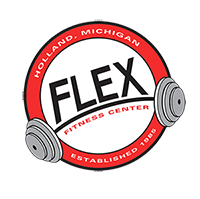
22 Jun Casein or Whey: Protein Powder That’s Best for You
If you’re hitting the gym, you’ve probably come across protein powders. These workout supplements are packed with essential amino acids that your body needs to build and repair muscle. But with so many options out there, how do you know which one is right for you?
Casein and whey are two of the most popular protein supplements available on the market. Each has its own unique benefits and characteristics, making them suitable for different fitness goals and dietary preferences.
Let’s explore the key differences between casein and whey protein powders so you can decide which of the two can help you achieve the results you’re striving for.
- Understanding the Basics: What is Casein and Whey Protein?
- Digestion and Absorption: How Do They Differ?
- Casein or Whey Protein Powder? A Quick Comparison
- Choosing the Right Protein: Which is Best for You?
Understanding the Basics: What is Casein and Whey Protein?
Casein is a slow-digesting protein that makes up about 80% of the protein found in milk. It forms a gel-like substance in your stomach, which leads to a slower and steadier release of amino acids into your bloodstream, making it a great option for a sustained protein supply.
Whey, on the other hand, accounts for the remaining 20% of milk protein. It’s quickly digested and absorbed by the body, making it a popular choice for a post-workout supplement. Whey protein provides a rapid influx of amino acids essential for muscle recovery and growth.
While both are derived from milk, these protein powders undergo different processing methods to separate them from other components. Whey is usually filtered and dried to create a powder, while casein is precipitated out using acid or enzymes before being dried.
Digestion and Absorption: How Do They Differ?
Muscle protein synthesis is the process by which your body repairs and builds muscle tissue. After exercise or physical activity, muscle fibers become damaged, and the body uses amino acids, the building blocks of protein, to repair and rebuild these fibers. Both casein and whey can help with this, but their impact varies due to their different digestion rates.
Casein, with its slower digestion rate, provides a sustained release of amino acids, which helps maintain muscle protein synthesis over an extended period. The prolonged supply of protein can be particularly beneficial at night or during periods when you won’t be eating for a while, as it helps prevent muscle breakdown.
Whey is a fast-digesting protein. After you drink your whey protein shake, it’s rapidly broken down and absorbed by your body, leading to a quick spike in amino acids in your blood. The spike stimulates muscle protein synthesis, making whey an excellent choice for post-workout recovery when your muscles need immediate nutrients to repair and grow.
Casein or Whey Protein Powder? A Quick Comparison
To help you choose between casein and whey protein powders, let’s compare them across several key factors:
|
Factor |
Casein | Whey |
| Digestion Rate | Slow, provides a steady release of amino acids | Fast, quickly absorbed into the bloodstream |
| Best Time to Consume | Before bed or during long intervals between meals | Immediately after workouts |
| Muscle Recovery | Sustains muscle recovery over a longer period | Rapidly boosts muscle protein synthesis |
| Nighttime Use | Ideal for preventing muscle breakdown at night | Less effective due to quick digestion |
| Satiety | Helps you feel full longer | Less effective for long-term satiety |
| Texture and Taste | Thicker and creamier, often preferred in shakes | Lighter and mixes well with liquids |
Choosing the Right Protein: Which is Best for You?
So, should you opt for casein or whey protein powder? Well, the answer depends on you! Consider your fitness goals, dietary needs, and personal preferences to make an informed decision.

-
- Fitness Goals
Are you looking to build muscle, lose weight, or maintain your current physique? If your main goal is muscle building, whey protein might be a better choice due to its ability to stimulate muscle protein synthesis quickly after workouts. For weight loss or maintenance, casein protein can help keep you feeling fuller for longer and prevent muscle loss during periods of calorie restriction.
-
- Dietary Needs
Do you have any dietary restrictions? Casein and whey proteins both derive from milk, so if you’re lactose intolerant or sensitive to dairy, you need a protein powder that is lactose-free or derived from alternative sources. Moreover, consider the other ingredients, such as added sugars or artificial sweeteners, to ensure they align with your dietary preferences.
-
- Personal Preferences
Consider your taste preferences and how each protein fits into your daily routine. Do you prefer a thick, creamy shake or a lighter, more watery consistency? Do you have a favorite flavor? The best protein powder for you is the one you enjoy and will consistently use. Don’t be afraid to experiment and find what works best for you.
And if you need help, don’t hesitate to reach out to Flex Fitness Center – we’re here to support you on your fitness journey! We offer a variety of high-quality protein supplements, including casein and whey protein powders, to suit your needs. Plus, our experienced personal trainers can provide personalized guidance to help you achieve your goals faster.
So, what are you waiting for? Visit us today and discover how we can help you elevate your fitness game. Prefer to shop from the comfort of your home? No problem! Check out our online store for a wide selection of protein powders and other workout supplements. Have a question or want to learn more? Feel free to call us at (616) 396-2901 or contact us here.
